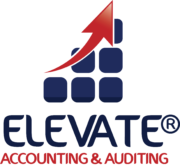INTERNAL AUDIT
Frameworks governing internal audits define Internal Audit as follows:
“Internal Audit provides an independent assurance on the effectiveness of internal controls and risk management processes to enhance governance and achieve organizational objectives”.
Internal audits are always a guiding mechanism for organizations to understand their operations in all dimensions and bridge the gap wherever required. Internal auditing activity is primarily directed at evaluating internal control. Internal Control is broadly defined as a process implemented by the management of the entity to ensure the achievement of the following the objectives:
- Efficiency & effectiveness
- Compliance with laws and regulations
- Safeguarding of assets
- Transparency and accuracy of financial and management systems.
Why should an organization have Internal Audit?
Conducting internal audits are crucial to understand the following:
- Are there internal controls in place for every process in the organization?
- Are these controls effective?
- Whether the entities risk assessment and mitigation procedures are appropriate?
- Whether opportunities for improvements are identified?
- Whether remedial actions are adopted and implemented?
What is the normal duration of Internal Audits?
Unlike external audits, internal audits dive deep into the organizational structure and procedures. As such, internal audit involves working closely with the employees and management of the organization. Typical internal audits range from three to four weeks to couple of months depending on the type and complexity.
What are the major stages in Internal Audit process?
Planning
Basic discussions regarding the scope and objectives of the audit, gathering of information regarding the organization and its processes, evaluation of existing controls and plans and audit schedule is prepared. Management is also included in this phase and all the details are documented for further actions.
Fieldwork
This stage involves implementing the audit plan drafted in the planning phase. Auditors will work closely with those in charge with the various operations, reviews the laws, policies and practices; verify the sample transactions and documents and analyses all the required data. Upon successful completion of the field work, auditors will be able to draw significant findings based on which the draft report is prepared.

Reporting
The end result of the audit process is the audit report which will contain observations, findings, and auditor’s opinion on the operation of the entity. The same will be prepared based on the audit workings and discussions with the management on the same.
Follow-up review
Upon successful submission and acceptance of the report by the management, the auditors follow-up to ensure that desired result as suggested in the report is achieved.
Why ELEVATE FIRST ACCOUNTING & AUDITING?
- Expert team of auditors: Our expert team will work with you closely to understand your requirements. We have the best of the professionals in the industry whose vast knowledge and exposure in this field gives our clients a valuable insight into their state of affairs.
- Time bound Audits: As much as we give importance to deliver the finest and utmost comprehensive audits, we also equally value your time. We always make sure our service is delivered well on time as per the initial agreement.
- Compliance with the industry best practices and standards:Our audit procedures align with the best practices accepted in the industry and we adhere to the international standards of accounting and auditing.
- Affordable Professional Charges: We always make sure the audits we deliver surpass the price we charge. Providing top notch services at the most affordable prices has always been our priority. With us you will always be content with our price and service.
